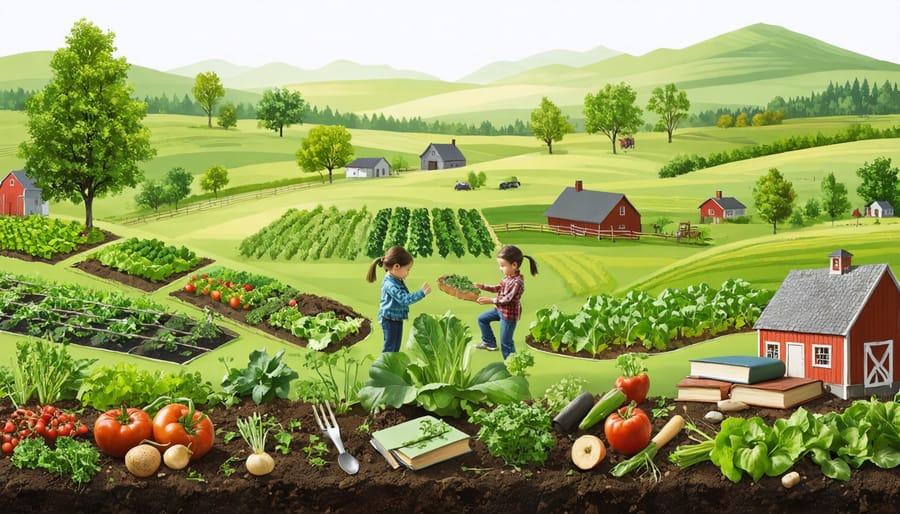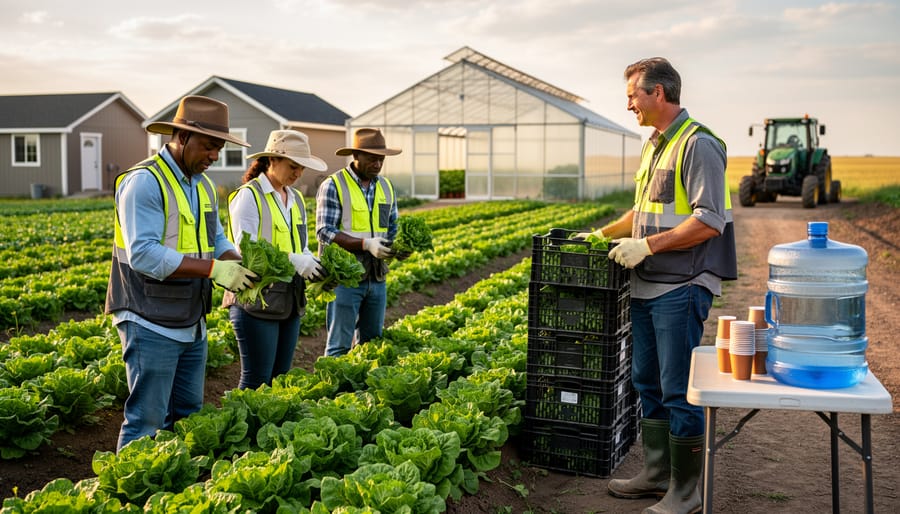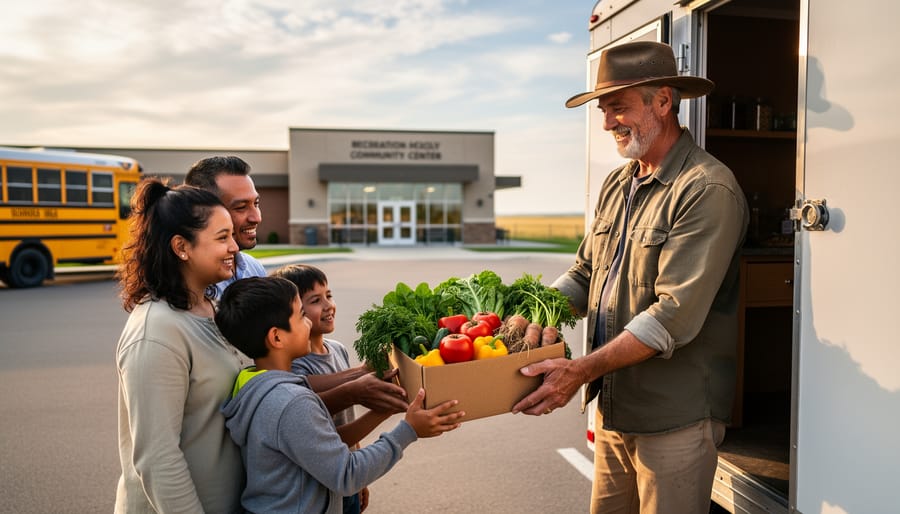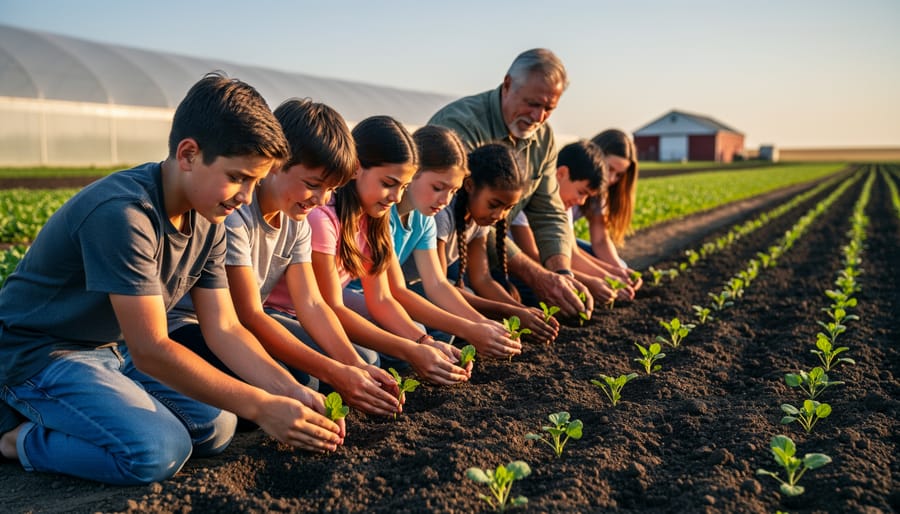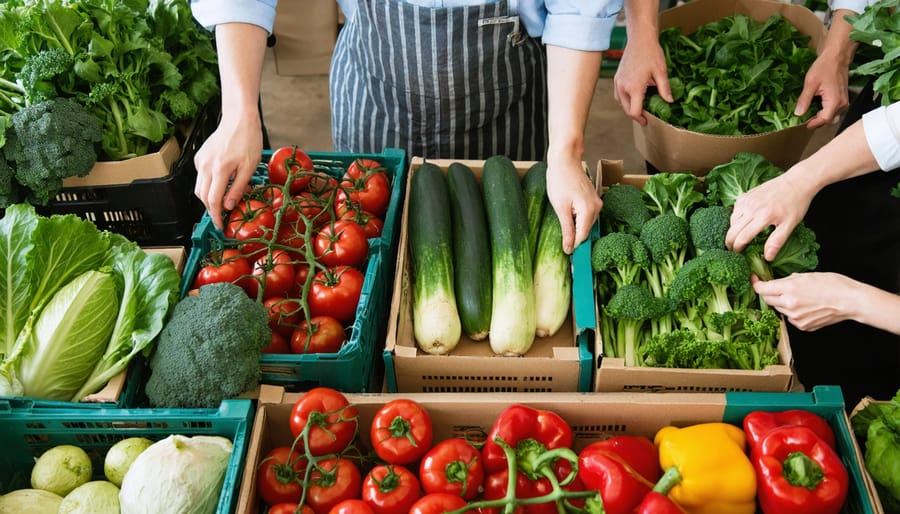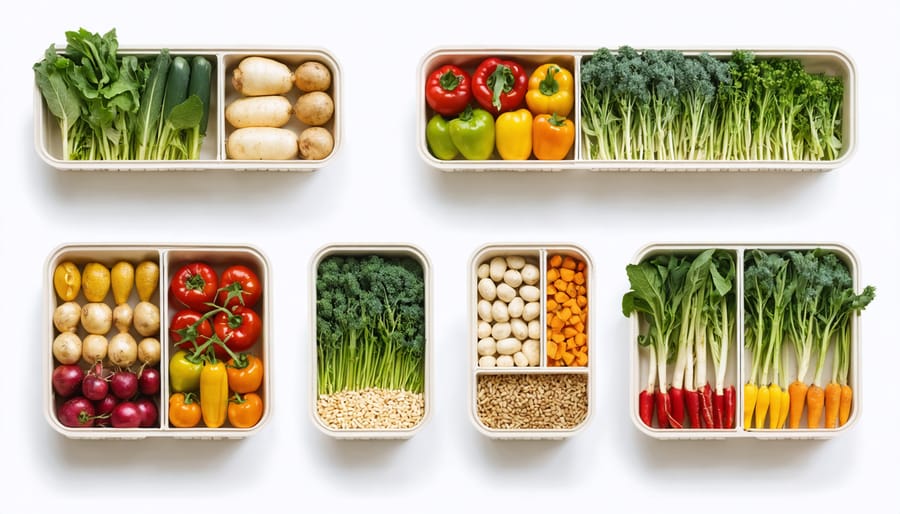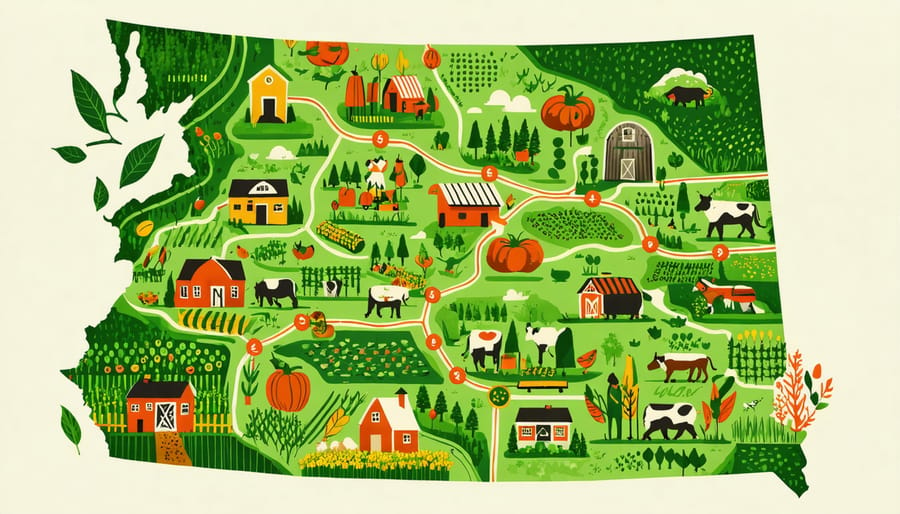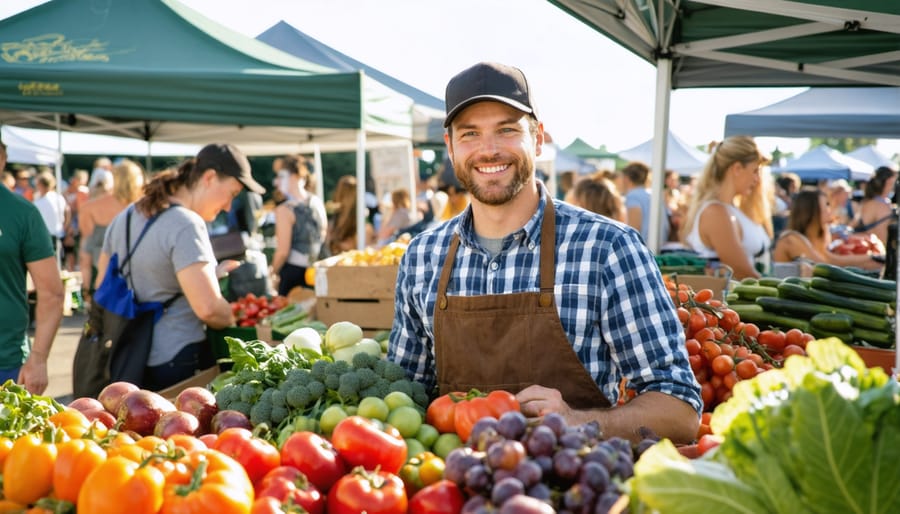Bridging the gap between classroom and field creates transformative learning experiences that shape the future of agriculture. As Alberta’s farm-to-table movement gains momentum, innovative educational programs are emerging to connect students with sustainable food production. From hands-on school gardens to working farm internships, these initiatives provide practical skills while fostering environmental stewardship and food literacy.
Local farmers partnering with educators have discovered that integrating agricultural knowledge into curriculum not only enhances student engagement but also ensures the preservation of traditional farming wisdom for future generations. This collaborative approach addresses two critical challenges: the aging farmer population and the growing disconnect between young Canadians and their food sources.
By combining traditional agricultural practices with modern educational techniques, we’re creating a new paradigm where learning extends beyond classroom walls. Students gain practical experience in sustainable farming methods, business management, and environmental science, while farmers benefit from fresh perspectives and technological insights brought by younger generations.
These educational partnerships represent more than just practical training—they’re building resilient communities and securing Canada’s agricultural future through hands-on learning and meaningful connections between farmers and students.
The Growing Impact of School Gardens in Alberta
Learning Beyond the Classroom
School gardens have become vibrant outdoor classrooms across Alberta, offering students hands-on experience with agricultural concepts they might otherwise only encounter in textbooks. At Lacombe Composite High School, students maintain a 400-square-metre garden where they learn about soil composition, plant biology, and sustainable farming practices through direct experience.
These living laboratories help students develop a deeper understanding of food systems while building practical skills. Students learn to plant, maintain, and harvest crops, gaining firsthand knowledge of seasonal growing cycles and crop management. They experience the challenges and rewards of agricultural production, from dealing with weather variations to celebrating successful harvests.
Beyond the technical aspects, school gardens foster important life skills. Students develop responsibility by caring for plants, practice teamwork through collaborative projects, and gain confidence in their ability to grow food. Many Alberta schools have partnered with local farmers who mentor students and share their expertise, creating meaningful connections between education and agriculture.
The impact extends beyond the garden fence. Produce from school gardens often supplies cafeterias with fresh vegetables, demonstrating the farm-to-table concept in action. Some schools have even established small farmers’ markets, teaching students about agricultural business while engaging the broader community in local food production.
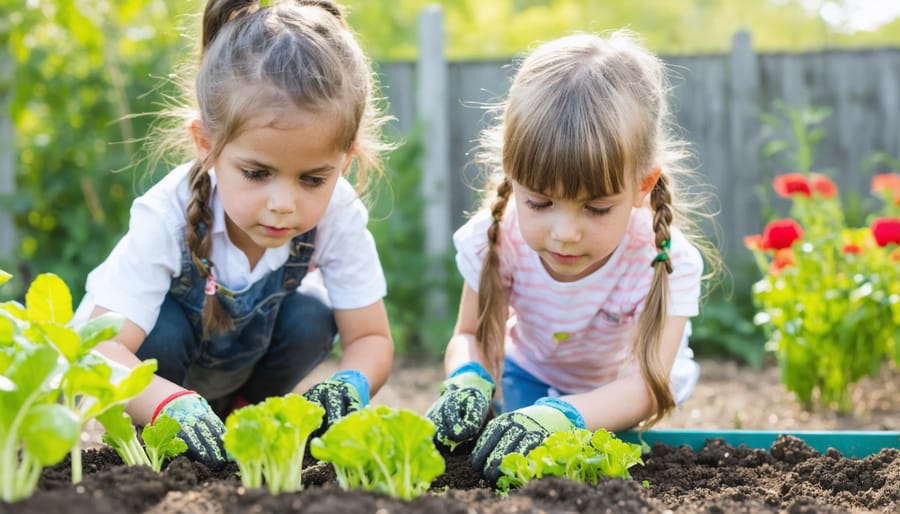
Measuring Success: Academic and Social Benefits
Research conducted across Alberta’s school garden programs has demonstrated significant positive outcomes in both academic performance and social development. A three-year study by the University of Alberta found that students participating in school farming programs showed a 15% improvement in science grades and a 12% increase in overall academic engagement.
The benefits extend beyond traditional academics. Students involved in these programs demonstrated enhanced problem-solving abilities, particularly in applying mathematical concepts to real-world situations like crop planning and harvest calculations. Teachers reported that 85% of participating students showed improved understanding of environmental science concepts through hands-on farming experience.
Social benefits have been equally impressive. The Calgary School Board’s 2022 assessment revealed that students in garden-based learning programs showed increased collaboration skills, with 78% of participants reporting stronger peer relationships. These programs have proven especially valuable for students who struggle with traditional classroom settings, providing alternative ways to learn and engage with their peers.
Indigenous knowledge integration has been another success story. Programs incorporating traditional farming practices have helped strengthen cultural connections while improving food literacy. The Medicine Hat School District reported a 40% increase in students’ understanding of sustainable agriculture practices and local food systems after implementing their garden program.
These measurable outcomes have encouraged more Alberta schools to adopt similar initiatives, with funding support increasingly available through provincial agricultural education grants.
Connecting Local Farmers with Schools
Building Sustainable Partnerships
Creating lasting partnerships between farms and schools requires a strategic approach focused on mutual benefits and long-term sustainability. The key to success lies in building stronger local food communities through consistent communication and shared goals.
Start by identifying schools within a 50-kilometre radius of your farm and reach out to their administration with a clear proposal. Consider starting with a pilot program that includes seasonal farm visits, classroom presentations, and small-scale food growing projects. Many Alberta schools are particularly receptive to partnerships that align with their curriculum objectives.
Establish regular communication channels through monthly meetings and create a shared calendar for activities. Document your partnership’s progress through photos, testimonials, and measurable outcomes like the number of students reached or amount of produce supplied to school cafeterias.
Seek support from local agricultural organizations and leverage existing networks. The Alberta Farm to School Network offers valuable resources and connection opportunities. Consider joining forces with other local farmers to share resources and expand program offerings.
Financial sustainability is crucial. Develop a clear funding model that might include grant applications, program fees, or produce sales. Many successful partnerships in Alberta have found creative solutions like student-run farmers’ markets or community supported agriculture (CSA) programs.
Remember to formalize your partnership with written agreements that outline responsibilities, expectations, and safety protocols. This provides clarity and protection for all parties while ensuring the program’s longevity.
Regular evaluation and adaptation of your programs ensure they remain relevant and effective. Collect feedback from teachers, students, and parents to continuously improve the partnership’s impact on both education and agricultural awareness.
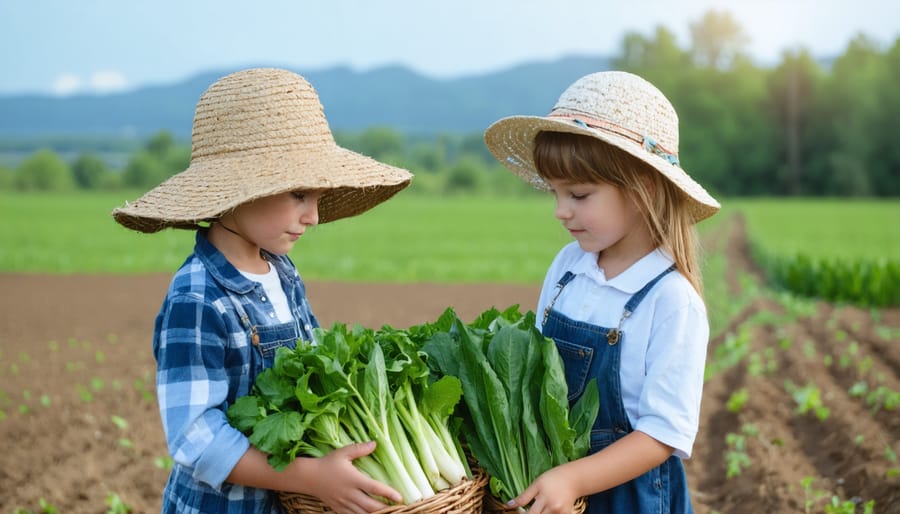
Farm Visit Programs That Work
Several Alberta farm visit programs have demonstrated remarkable success in connecting students with agriculture. The Grassroots Family Farm near Red Deer hosts over 2,000 students annually through their “Seeds to Success” program, which combines hands-on farming experience with curriculum-aligned learning outcomes.
At Prairie Gardens Adventure Farm in Bon Accord, their innovative approach includes seasonal workshops that teach students about sustainable farming practices while supporting local farms. Their program has seen a 40% increase in school participation over the past three years.
The Southern Alberta Farm Experience (SAFE) initiative partners with local schools to offer year-round educational visits. Their program stands out for its integration of Indigenous agricultural knowledge and modern farming techniques. Students participate in activities ranging from seed starting to harvest celebrations, with measurable improvements in their understanding of food systems.
Key elements that make these programs successful include:
– Age-appropriate activities aligned with curriculum objectives
– Seasonal planning that maximizes learning opportunities
– Strong partnerships with local school boards
– Trained staff who understand both education and agriculture
– Clear safety protocols and insurance coverage
– Regular program evaluation and adaptation
These successful programs share a commitment to experiential learning and community engagement. They demonstrate that when farms invest in educational infrastructure and partner with educational institutions, they create valuable learning experiences that benefit both students and the agricultural community.
Practical Implementation Strategies
Starting Your School Garden Program
Starting a school garden program requires careful planning and community engagement, but the rewards for students and the broader community make it well worth the effort. Here in Alberta, successful school gardens have flourished from Edmonton to Medicine Hat, providing valuable hands-on learning experiences for students of all ages.
Begin by forming a dedicated garden committee that includes teachers, administrators, parents, and local farming experts. This diverse team brings different perspectives and skills to ensure your program’s success. Next, assess your available space and resources. Even small spaces like raised beds or container gardens can serve as effective learning environments.
Secure funding through local agricultural grants, parent council fundraising, or community partnerships. Many Alberta-based agricultural organizations offer support for educational initiatives. The Alberta Farm to School program, for instance, provides both funding opportunities and valuable resources for getting started.
Develop a year-round planning calendar that aligns with both the growing season and academic year. Consider starting small with cold-hardy crops like root vegetables and leafy greens that can withstand our climate. Include indoor growing activities for the winter months to maintain student engagement throughout the year.
Essential components of your program should include:
– A detailed maintenance schedule
– Safety protocols and guidelines
– Curriculum integration plans
– Composting and sustainable practices
– Community involvement opportunities
– Storage solutions for tools and equipment
Partner with local farmers who can provide expertise and potentially donate seeds, soil, or equipment. These connections create meaningful community bonds and give students direct access to agricultural knowledge. Many Alberta farmers are eager to share their experience with the next generation.
Remember to document your progress and celebrate successes with harvest festivals or farming education days. These events help build program support and demonstrate the value of agricultural education to the broader community. As your program grows, consider expanding to include cooking classes, farmers’ market projects, or farm-to-cafeteria initiatives.
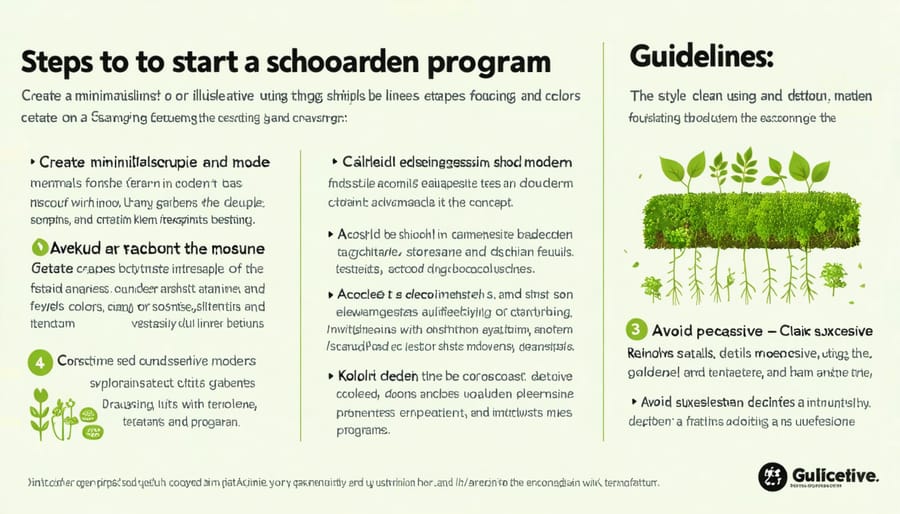
Integrating Local Food into School Curriculum
Integrating agricultural education into the standard curriculum offers exciting opportunities to bring real-world learning into the classroom. In Alberta schools, teachers are finding creative ways to connect core subjects with farming concepts, making education more engaging and relevant for students.
Mathematics classes incorporate practical agricultural examples, such as calculating crop yields, measuring field dimensions, and managing farm budgets. Science teachers use school gardens as living laboratories, where students learn about plant biology, soil chemistry, and year-round local food production through hands-on experiments.
Social studies curricula explore the historical significance of farming in Canadian communities, local food systems, and indigenous agricultural practices. Language arts classes engage students through agricultural journalism projects, technical writing assignments about farming procedures, and creative storytelling about food production.
Many Alberta schools have implemented successful cross-curricular projects. For example, Calgary’s Meadowbrook School created a “Farm Math” program where students calculate optimal growing conditions while maintaining a school greenhouse. In Edmonton, Richardson Elementary developed a “Science of Soil” unit that combines chemistry, biology, and environmental studies through practical gardening activities.
To implement agricultural education effectively, teachers can:
– Partner with local farmers for field trips and classroom presentations
– Create seasonal growing projects that align with academic calendars
– Use agricultural examples in word problems and writing prompts
– Develop food-based science experiments
– Incorporate traditional Indigenous farming knowledge
– Design project-based learning activities around sustainable agriculture
These integrated approaches help students understand the connection between their studies and the real world while fostering appreciation for local agriculture. The hands-on nature of agricultural education also supports different learning styles and helps build practical skills that students can use throughout their lives.
As we’ve explored throughout this article, the connection between education and farming in Alberta represents a powerful opportunity for community growth and sustainable agricultural development. The integration of educational initiatives with farming practices has shown remarkable results across our province, from small family farms to large agricultural operations.
The key takeaways are clear: successful agricultural education programs benefit both our farming community and the next generation of agricultural professionals. We’ve seen how hands-on learning experiences, mentorship programs, and collaborative initiatives between schools and local farms create lasting impact and foster a deeper understanding of sustainable farming practices.
For Alberta farmers considering involvement in educational programs, remember that your knowledge and experience are invaluable resources for learners of all ages. Whether through hosting school visits, participating in apprenticeship programs, or sharing your expertise at community workshops, your contribution helps build a stronger, more knowledgeable agricultural community.
The path forward involves active participation from all stakeholders. Consider taking these next steps:
– Reach out to local schools and educational institutions to explore partnership opportunities
– Join or establish mentorship programs in your area
– Share your farming knowledge through community workshops or online platforms
– Participate in agricultural education events and conferences
– Document and share your successful farming practices to help others learn
Remember that investing in agricultural education today helps ensure the sustainability of our farming communities tomorrow. The future of Alberta’s agriculture depends on the knowledge we share and the connections we build between experienced farmers and eager learners.
Let’s continue working together to strengthen the bond between education and farming in our province. Your involvement, no matter how small, contributes to the larger goal of creating a more sustainable and knowledgeable agricultural community for future generations.

